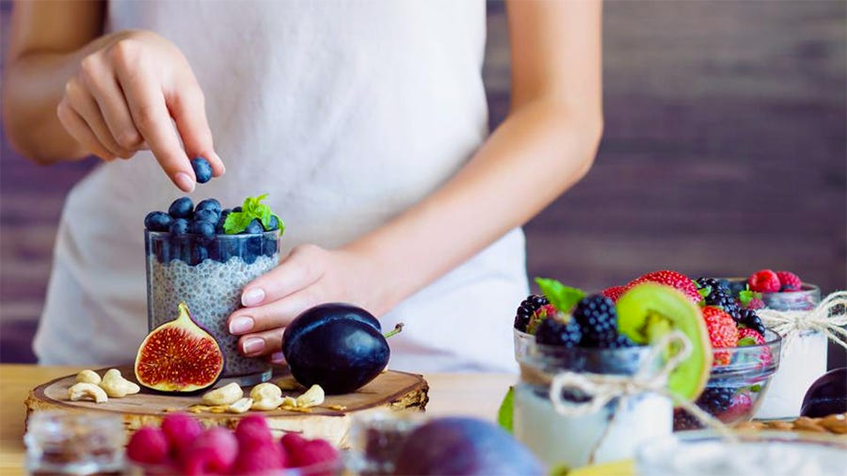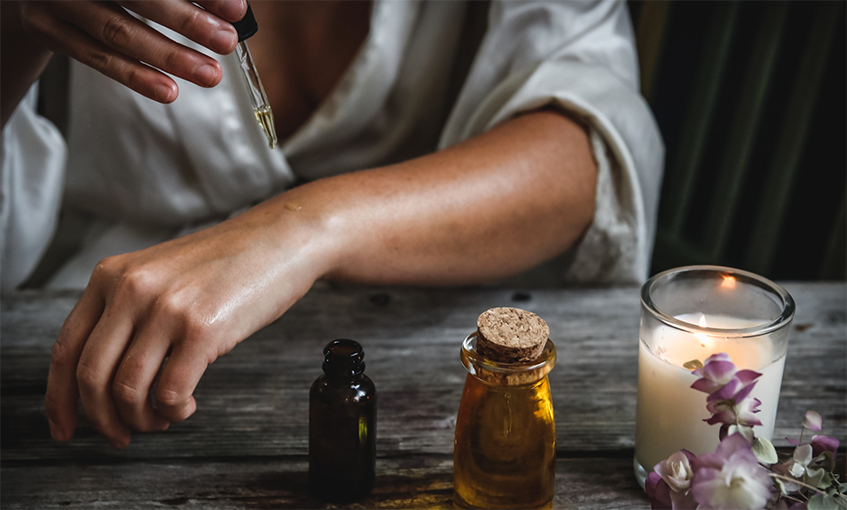Did you know that your gut is also referred to as ‘the second brain’? The gut is a sensory organ that houses its own nervous system – the enteric nervous system. It contains a number of small nerves that communicate with the nerve that carries signals to and from the brain. These signals can range from sending messages to the stomach muscles to use the products of digestion to create serotonin (happiness hormone) to contract and push food through.
The function of the gut is to help the body to maintain a steady-state, so you aren’t supposed to notice this brain connection unless something is wrong. Signs of imbalance in the gut-brain connection include heartburn, gas, bloating, constipation as well as hormonal abnormalities like brain fog or mood swings. When your gut is healthy, you are also less likely to experience damage inflammation and lapses in immunity.
There are many things you can do to help you build a healthy gut; things that are easy to follow and incorporate into your everyday life. Doing so will help you feel much better and your gut flora will be restored as well.

Include Fibre-Rich and Probiotic-Packed Foods to Your Diet
Fibre is a plant-based nutrient capable of reducing the risk of metabolic diseases. It stimulates the growth and diversity of good bacteria in the gut, improving its health. Spinach, sweet potatoes, carrots, beets and fennel are full of naturally gut-enhancing fibre, but all fruits and vegetables are rich sources of fibre. Whole grains are also a great source of fibre.
Fermented foods like yogurt, kefir, kimchi, kombucha and sauerkraut are also cherished for their gut-boosting abilities, thanks to the presence of probiotics. Kefir specifically, can help calm gastrointestinal conditions like constipation, diarrhea and inflammatory bowel disease. Research has found that individuals who eat yogurt regularly have more lactobacilli (a gut-benefitting bacteria) in their intestines and fewer enterobacterium, which is a type of bacteria known to cause inflammation.
Take Digestive Supplements
Digestive supplements have become increasingly popular as people have started understanding the importance of gut health. While these supplements aren’t an elixir for gut health, evidence shows that they can give the microbiota a boost and restore gut health under certain conditions. The most common type of digestive supplements used to aid gut health is probiotics.

Probiotics are gut health supplements that contain probiotic bacteria or yeast, both of which is involved in a wide range of functions from aiding in digestion to boosting the immune system. When you take a probiotic supplement, you add more of this beneficial bacteria to your gut. Doctors like to say that probiotics are like “good cops”. So when you take a probiotic, you are putting in the good cops to keep watching over the bad guys.
Because probiotics are popular, they are easy to find. However, not all of them are worth your money. Not all of them contain the same types of bacteria or the same concentrations. While many probiotic supplements include a lot of different strains into one capsule, different strains can be linked to different benefits. With that said, it makes sense to seek out a supplement with a strain known to have the potential in supporting your needs.
For general health support, look for a probiotic that contains lactobacillus, Saccharomyces boulardii and Bifidobacterium. For regularity, the probiotic should include lactobacillus rhamnosus GG, lactobacillus bulgaricus, lactobacillus acidophijus and Saccharomyces boulardii. For bloat, a probiotic containing lactobacillus acidophilus and Bifidobacterium lactis will better suit your needs.
Probiotics are generally considered safe and don’t cause any side effects on healthy people. However, if you have a compromised immune system or have an illness, you may want to consult with your doctor first. You can take a probiotic supplement every day in addition to incorporating probiotic foods into your diet, like yogurt, kefir among others.

Sleep More
You may have heard the term “biological clock” It refers to your internal timer. Your biological clock runs on a 24/7 schedule and determines important functions like sleep and digestion. Not getting enough sleep can disturb your digestion and your microbiome. Sleep deprivation can also negatively affect your brain. If you have problems falling and staying asleep, try these tips to help improve your sleep.
Manage Stress
Establishing balance in your life not only support your mental and emotional health but also optimize your gut and overall health. Stress can cause damage to your microbiome and you need it to be healthy to help you manage your stressors. Not giving yourself time to re-energize can lead you to get caught in an unhealthy cycle. Meditation, mindfulness, and yoga are great ways to achieve balance in life.
While many people tend to turn medications to manage their stress, this approach can lead to negative side effects and you may ultimately end up with a longer list of health issues. Holistic therapies are a better way to achieve well-being. Essential oils, for example, are natural medicine that can be used to treat a variety of mental and health issues, including reducing stress and anxiety. And for that purpose, there is a number of relaxing oils you can try.

One of the most popular relaxing oils is lavender. The oils extracted from this beautiful purple flower has incredible healing powers when it comes to calming the mind. Lavender oils have the ability to activate the parasympathetic nervous system, which is the part of our nervous system responsible for relaxation. By doing so, the oil helps you calm down while also decreasing the symptoms of anxiety.
Next to lavender is the bergamot essential oil. Extracted from the peel of the citrus bergamia, this essential oil is effective at lessening stress as well. A study showed that bergamot helps improve negative emotions and fatigue and also lower saliva cortisol levels (the body’s stress hormone).
You can inhale the soothing scent of these essential oils by sprinkling a couple of drops of the oil onto a cloth or tissue or using an aromatherapy diffuser.


